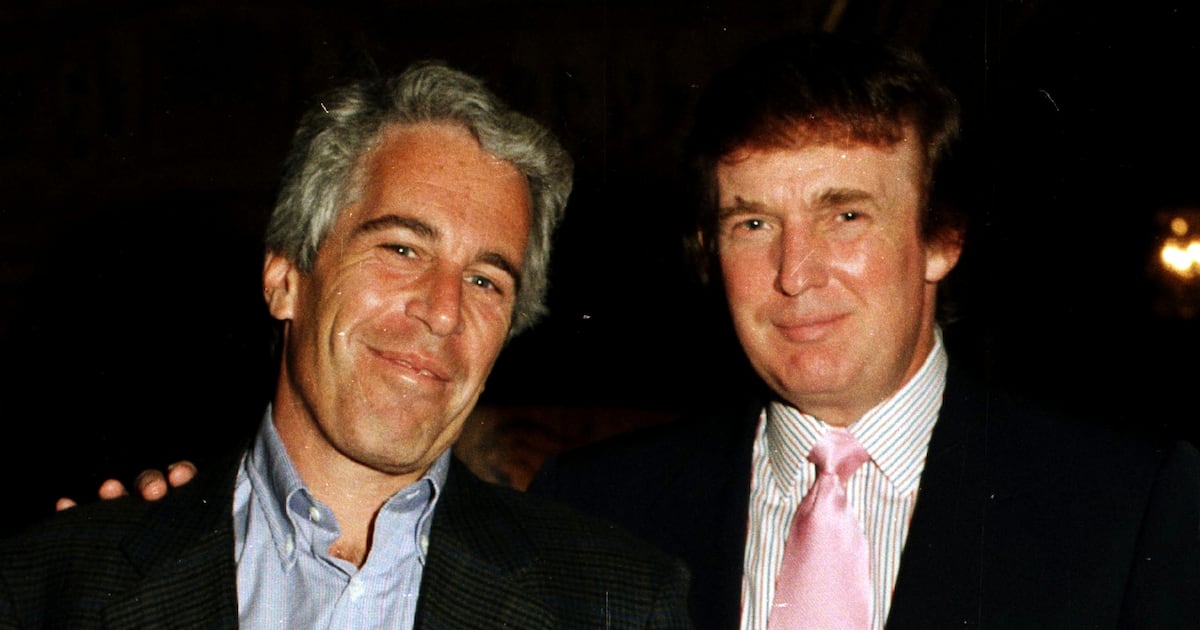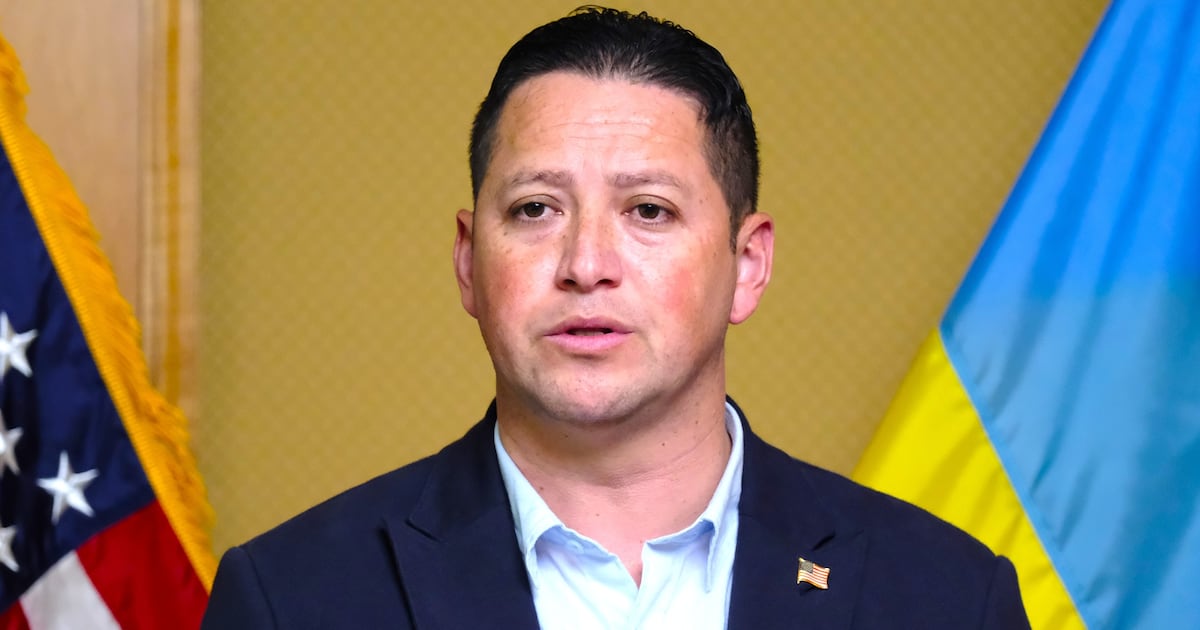Internal documents from Time’s Up reveal that half of its staffers were warning of serious problems within the star-studded anti-harassment group last summer—more than a year before the organization’s very public leadership implosion.
A June 2020 letter from staff members to then-CEO Tina Tchen lays out a cascade of issues that would later become the basis of bombshell reports about the group that doomed top officers, eroded public support, and put its future in jeopardy.
The memo, former staffers say, should have served as a warning to the organization that it needed to make substantial changes before it was too late.
‘It’s not like they didn't know these things were possible, because people kept telling them— including the people they hired to bring their expertise to this work,” one former staffer told The Daily Beast.
The letter—signed by 14 of the 22 full-time employees at the organization at the time—was sent after Tchen hosted an all-staff meeting to address a damaging Hollywood Reporter piece, which made the case that Time’s Up had grown too indebted to its powerful public allies. In the letter, the employees indicated that they shared these concerns.
“We, too, fear we are moving in a direction where we are becoming beholden to the interests of those already in power—rather than working towards building a better future for the people who need us most, especially now,” they wrote.

Tina Tchen attends the Time's Up luncheon at the Martha's Vineyard Film Festival on Aug. 11, 2021.
Arturo Holmes/GettyThe Daily Beast previously reported on how Tchen attempted to brush aside these concerns at the internal meeting, telling staffers that Time’s Up had “always been an organization of wealthy and powerful people.” In their follow-up letter, the staffers took issue with her response, complaining that leadership spent most of the time at the meeting “defending TIME’S UP’s actions, point by point” and that “any questions or comments by staff were met with annoyance or outright dismissal.”
“TIME’S UP exists to hold the powerful to account, and to call out injustice when we see it,” the staffers wrote. “We would like to see in our own leadership model what it looks like to take responsibility when we fall short— to display self-awareness and humility in those moments, and to commit to concrete action that will rectify past mistakes.”
The staffers further argued that this kind of behavior went beyond the meeting in question and permeated much of their interactions with leadership. Junior staffers were “largely silent in team meetings,” they wrote, “not because we do not have things to say, but because we do not feel our perspectives are truly welcomed and valued.” Too often, they wrote, staffers were asked to change course in the middle of a project with little explanation, were ignored when reporting out the results of these projects, and—most distressingly—were “told to pull back when we try to take an affirmative, bold stand.”
The letter also raised issues around Time’s Up’s support for women of color, and argued that the group needed to adopt “an active anti-racist approach in our work—or we will be leaving Black women behind.” The employees suggested the organization invest in “substantive programming” on the issues of women of color and commit to hiring and retaining more Black leadership.
The work would not be easy, and it would not happen overnight, the staffers conceded. But, they added, “continuing to wallpaper over the gaps in our strategy and in our programming with flashy communications is only further entrenching the problem.”
“TIME’S UP’s effectiveness in holding the powerful to account hinges entirely on our own ability to hold ourselves accountable,” the staffers concluded. “That work is an ongoing, never-ceasing effort to constantly seek feedback both internally and externally; question our own blind spots and invite in alternate viewpoints; and admit fault and commit to doing better when we falter, as we surely will.”
A spokesperson for Tchen said she received the letter as part of “an extensive dialogue with staff as a group, one on one, within departments and with and without managers, including retaining outside expert assistance.”
“In the four months before the pandemic shut down travel and in person meetings, Tina traveled the country to meet directly with survivors and other stakeholders, efforts which would have continued had they been possible,” the spokesperson said.

Roberta Kaplan stepped down from Time’s Up last month amid allegations the group put powerful allies ahead of its mission.
Phillip Faraone/GettyThese same issues would resurface this year, as Time’s Up was called to respond to reports that its leadership had consulted with Gov. Andrew Cuomo on the sexual harassment allegations against him. More than 100 survivors signed onto a public letter accusing the organization of “prioritiz[ing] its proximity to power over mission” and calling for more transparency and accountability.
When board chair Roberta Kaplan stepped down—and later, when Tchen resigned her role as CEO—their resignation statements were lambasted for the same lack of “self-awareness and humility” that staffers had called out 13 months earlier.
“Instead of offering a sincere apology to the survivors, activists and allies she’s harmed, @TinaTchen goes out the same way our former Governor did—listing her accomplishments, pointing the finger at others, and attempting to justify her inexcusable behavior,” Cuomo accuser Charlotte Bennett tweeted in response to Tchen’s resignation letter. “Good riddance.”
Former staffers told The Daily Beast they were unsurprised that former Time’s Up leadership seemed not to have learned their lesson.
“There was space to voice your opinion [at Time’s Up,] but they just ended up doing what they wanted to do anyway,” one former staffer said. “We were not listened to and the issues continued to happen.”
The June 2020 letter was the result of several secret meetings junior staffers conducted that summer, as their frustration reached a boiling point. Employees were already troubled by what they saw as a lack of strategic vision within the group; the surging Black Lives Matter movement—and what staffers saw as Time’s Up’s failure to adequately respond to it—only added to those feelings. They began meeting by Zoom in the wake of the Hollywood Reporter piece, and ultimately decided to put their concerns in writing and request a meeting with Tchen.
The staffers did get their meeting, and thanked Tchen in a follow-up letter for her “openness to dialogue.” Leadership made some attempts at change in the months that followed, former staffers said, but those efforts were viewed as ineffective and disorganized. A year later, only three of the 14 original signatories remained on staff.
This summer, shortly after Tchen and Kaplan departed, Time’s Up announced that its entire governing board and global leadership board would also step down. Monifa Bandele, the group’s former chief operating officer and a prominent Black Lives Matter activist, took over as interim CEO; the group also hired business and marketing executive Leilani M. Brown to lead a “comprehensive assessment of the organization.”
“Through recent feedback from various stakeholders, we recognize that TIME’S UP has not always hit the mark in terms of our mission to advocate for safe, fair and dignified work for women of all kinds,” Time’s Up said in a statement Thursday to The Daily Beast. “Today we are focused on how we learn from the past to be a better advocate for our mission in the future.” (Tchen did not respond to multiple requests for comment.)
But former staffers said the organization would not be able to move forward until it had grappled with the issues that they had raised all those months ago.
“If they want to understand what happened here—if they want to understand the strategic planning challenges and the ways in which staff did try to raise these concerns—they should be talking to former staff,” one former employee said. “We are a constituency here and we are part of all of this.”







